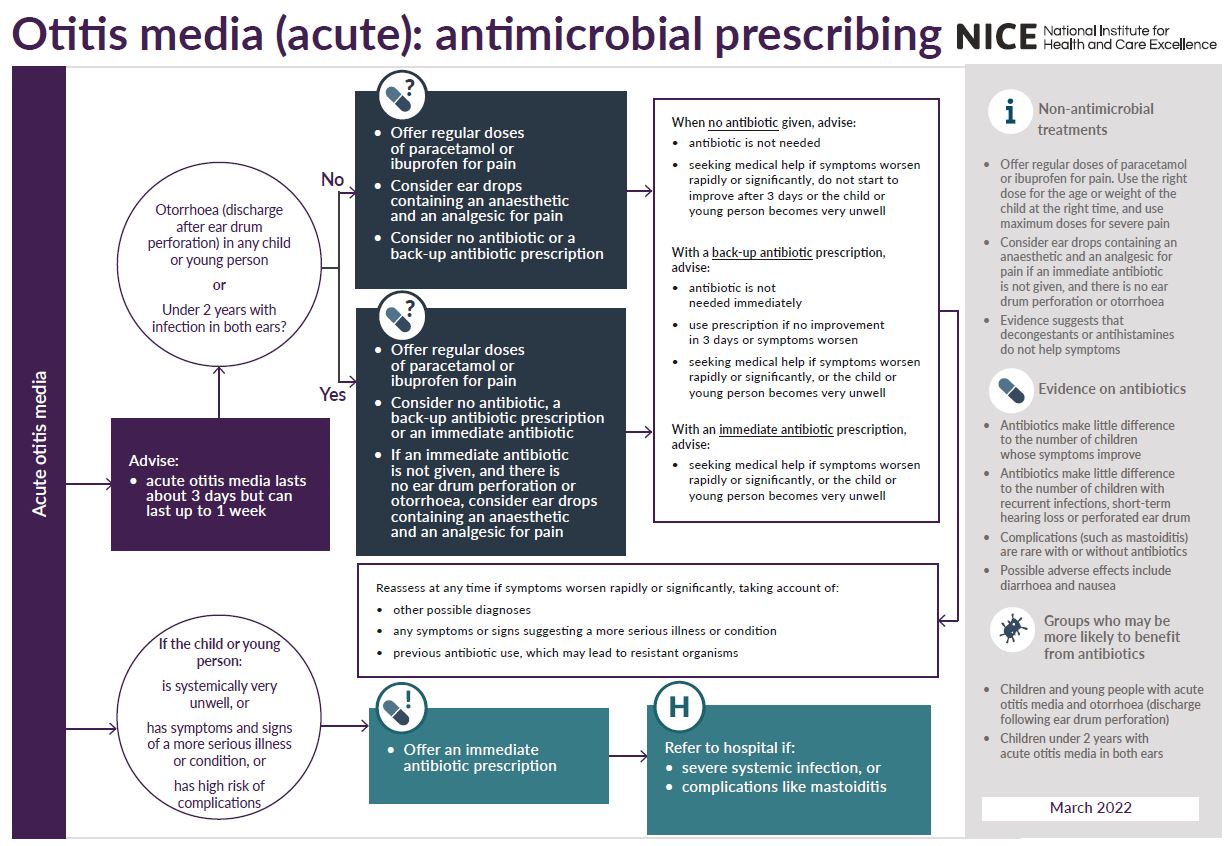Overview
This guideline sets out an antimicrobial prescribing strategy for acute otitis media (ear infection). It aims to limit antibiotic use and reduce antimicrobial resistance. Acute otitis media can be caused by viruses or bacteria. It lasts for about a week, and most children get better in 3 days without antibiotics. Serious complications are rare.
In March 2022, we reviewed the evidence and added a recommendation on eardrops containing an anaesthetic and an analgesic because a licensed preparation is now available in the UK. For more information, see update information.
See a 2-page visual summary of the recommendations, including tables to support prescribing decisions.
NICE has also produced a guideline on antimicrobial stewardship: systems and processes for effective antimicrobial medicine use.
Recommendations
This guideline includes recommendations on:
- managing acute otitis media, including advice when an antibiotic is not needed
- choice of treatment
Who is it for?
- Health professionals
- Children and young people with acute otitis media and their families and carers
Guideline development process
How we develop NICE guidelines
NICE worked with Public Health England to develop this guideline.
This guideline partially updates and replaces NICE guideline CG69 (published July 2008).
Your responsibility
The recommendations in this guideline represent the view of NICE, arrived at after careful consideration of the evidence available. When exercising their judgement, professionals and practitioners are expected to take this guideline fully into account, alongside the individual needs, preferences and values of their patients or the people using their service. It is not mandatory to apply the recommendations, and the guideline does not override the responsibility to make decisions appropriate to the circumstances of the individual, in consultation with them and their families and carers or guardian.
All problems (adverse events) related to a medicine or medical device used for treatment or in a procedure should be reported to the Medicines and Healthcare products Regulatory Agency using the Yellow Card Scheme.
Local commissioners and providers of healthcare have a responsibility to enable the guideline to be applied when individual professionals and people using services wish to use it. They should do so in the context of local and national priorities for funding and developing services, and in light of their duties to have due regard to the need to eliminate unlawful discrimination, to advance equality of opportunity and to reduce health inequalities. Nothing in this guideline should be interpreted in a way that would be inconsistent with complying with those duties.
Commissioners and providers have a responsibility to promote an environmentally sustainable health and care system and should assess and reduce the environmental impact of implementing NICE recommendations wherever possible.
